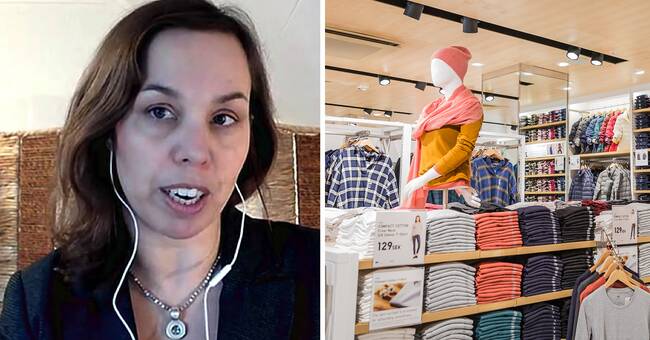Sales of clothing have decreased by an average of almost 17 percent and shoes by 30 percent during March to October, compared with the same period last year, according to figures from Swedish Trade.
- During the corona pandemic, e-commerce has grown explosively, but that does not cover the sales loss we have seen in the physical stores, says Gabriella Wulff, consumer researcher at the University of Gothenburg.
Bigger environmental nuisance than aviation and shipping
At all levels, the fashion industry emits more greenhouse gases than aviation and shipping combined, according to the UN trade agency Unctad.
Factory emissions of chemicals cause pollution of land and watercourses in the poor countries where a large part of textile production is located.
- We can see that 80 percent of the climate impact comes from production.
So every garment that is not manufactured is a climate benefit, says Jonna Elofsson Bjesse, environmental scientist and communications manager at the association Conscious Consumption.
Despite increased awareness of the environmental impact, the industry's production has continued to grow in recent years, largely due to the concept of “fast fashion”, or fast fashion, which is based on cheap manufacturing, repeated consumption and short-lived use of garments.
Today, more than twice as many garments are manufactured globally as just 20 years ago, according to research.
Consequences in the textile factories
During the corona spring, strong criticism was leveled at several of the major global clothing chains that placed orders and avoided paying, despite the fact that the clothes were already made at the textile factories.
In Bangladesh alone, more than a million textile workers had lost their jobs by the end of March, and many factories had been forced to close completely.
Many players in the Swedish fashion industry have now chosen to adapt to the new situation by reducing order volumes.
- Temporarily the trend stagnates with "fast fashion" and short life cycles, but in the long run it may come back when we get our social contexts back, predicts consumption researcher Gabriella Wulff.

